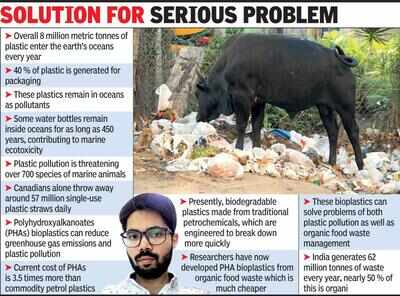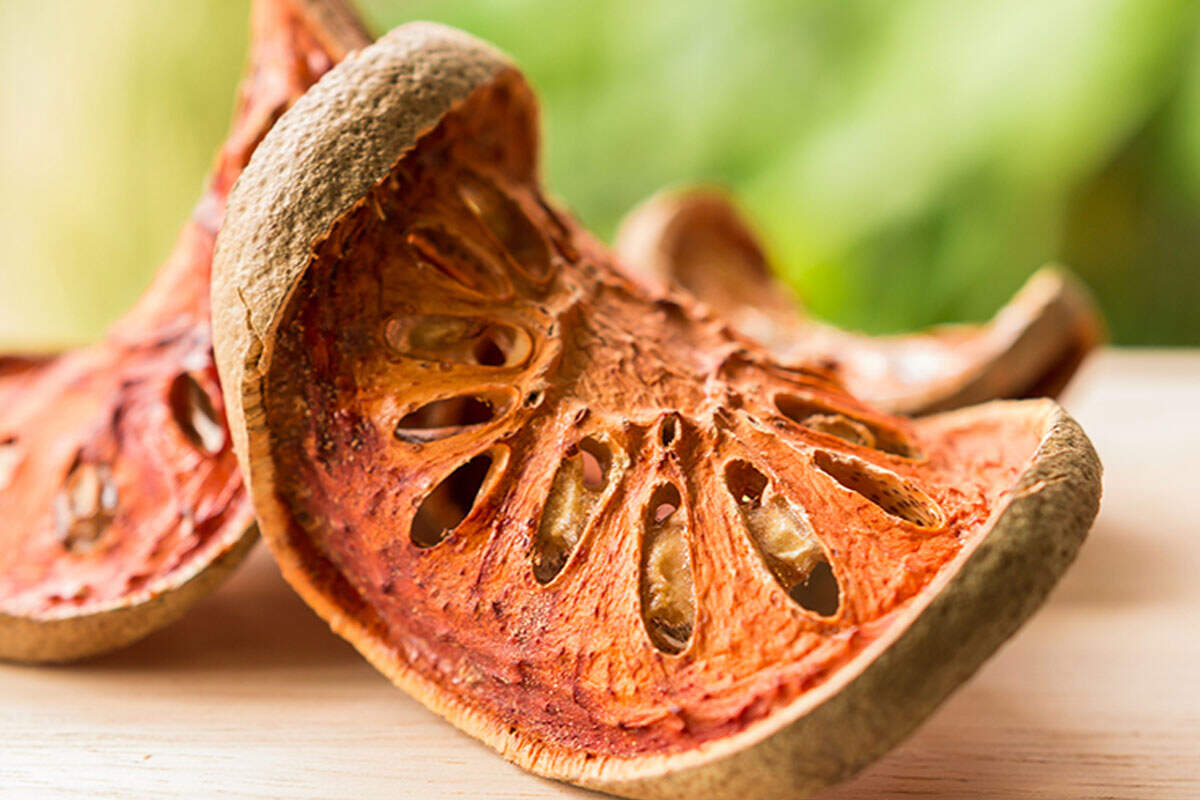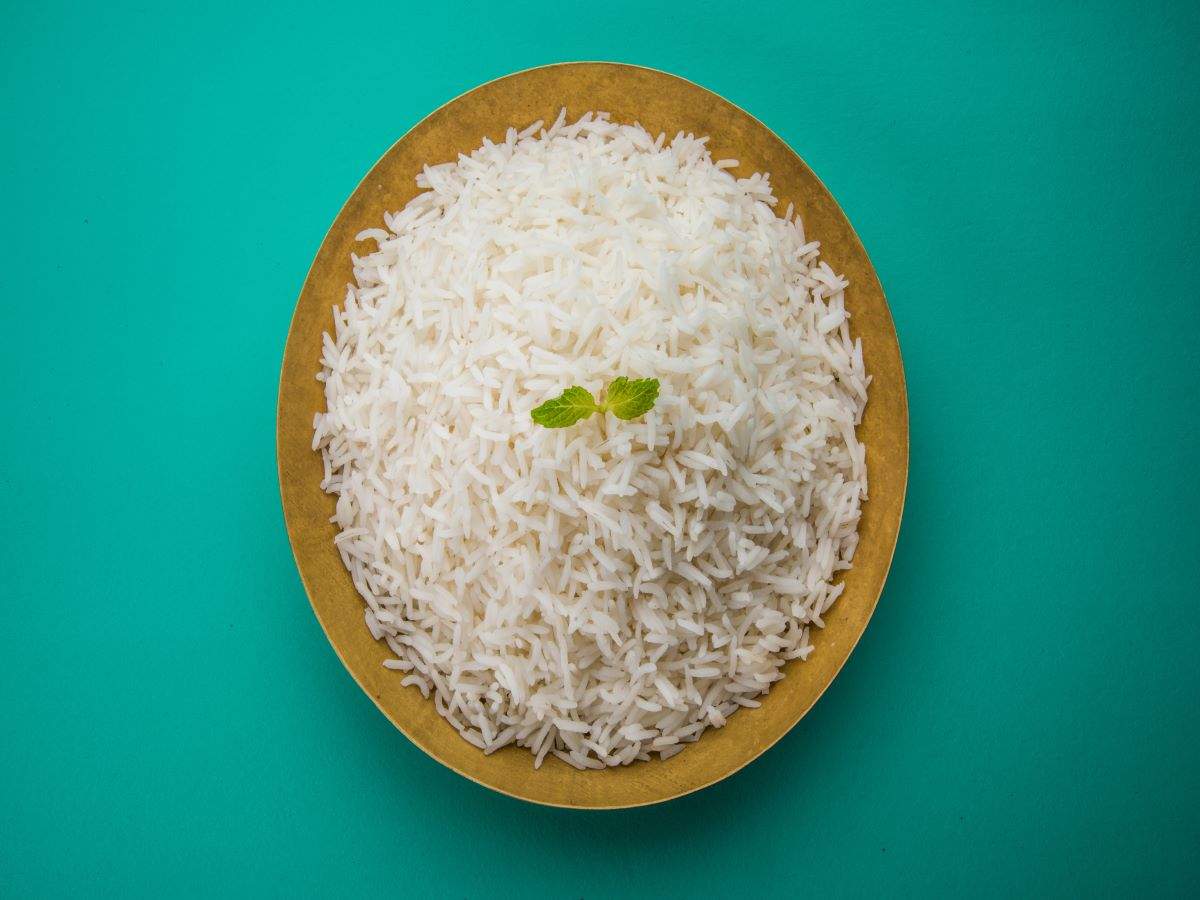
Vadodara: A solution is in sight to tackle the colossal food wastage in India.
An alumnus of M S University’s Faculty of Technology and Engineering (FTE) has played a key role in developing a green technology that can convert organic food waste into biodegradable plastics. Sudhanshu Soman, a chemical engineering graduate from 2013 batch, along with his team has also bagged a US patent for the technology recently.
After finishing his masters from University of Waterloo, Sudhanshu had joined Genecis Bioindustries Inc., a Toronto-based start-up recognised by government of Canada, as a chemical engineer lead.
The technology is to develop biodegradable plastics which are manufactured with food waste as raw material. Such plastics are water soluble and without any harmful effects.
The start-up has scaled up lab process of producing biodegradable plastics to a demonstration plant that is capable of turning 3,000 kg per week of organic food waste into biodegradable plastics. This type of bioplastics are called polyhydroxyalkanoates (PHA). Currently, there are no reports of commercial production of PHA from organic waste.
“By replacing conventional petroleum-based plastics, PHA bioplastics can reduce greenhouse gas emissions and plastic pollution due to waste accumulation. PHAs currently costs 3.5 times more than commodity petrol plastics. Our current cost reductions allow PHAs to undercut all other bioplastic options, presenting a viable economic choice,” said Sudhanshu.
This plastic would be used for high-end applications including manufacturing of coffee cups, straws, plastic bags, 3D printing filaments, medical purpose and personal care products among others.
“Our proprietary technology reduces the resin production costs by 40%, lowering the barrier for plastic manufacturers to create healthy and affordable products,” he said.
PHAs have mechanical and physical properties similar to commodity plastics but biodegradability is an added advantage.
According to researchers, the technology will help both in disposal of organic waste (which contributes significantly to greenhouse gas emissions) and tackle the challenge of plastic pollution.
Despite popularity of composting, a large portion of organic waste ends up in landfills. Its decomposing in the anaerobic environment of landfills leads to production of methane, a potent greenhouse gas.
“As a parent I am proud of his achievement as he has received patent at a tender age. He is below 30. This research is very relevant in the present scenario worldwide including India,” said Sudhanshu’s father professor Sanjay Soman, who works with metallurgical and materials engineering department of MSU.
“Many state governments within our country have banned used of plastics. This technology will help in shaping our environment the right way,” he said.
An alumnus of M S University’s Faculty of Technology and Engineering (FTE) has played a key role in developing a green technology that can convert organic food waste into biodegradable plastics. Sudhanshu Soman, a chemical engineering graduate from 2013 batch, along with his team has also bagged a US patent for the technology recently.
After finishing his masters from University of Waterloo, Sudhanshu had joined Genecis Bioindustries Inc., a Toronto-based start-up recognised by government of Canada, as a chemical engineer lead.
The technology is to develop biodegradable plastics which are manufactured with food waste as raw material. Such plastics are water soluble and without any harmful effects.
The start-up has scaled up lab process of producing biodegradable plastics to a demonstration plant that is capable of turning 3,000 kg per week of organic food waste into biodegradable plastics. This type of bioplastics are called polyhydroxyalkanoates (PHA). Currently, there are no reports of commercial production of PHA from organic waste.
“By replacing conventional petroleum-based plastics, PHA bioplastics can reduce greenhouse gas emissions and plastic pollution due to waste accumulation. PHAs currently costs 3.5 times more than commodity petrol plastics. Our current cost reductions allow PHAs to undercut all other bioplastic options, presenting a viable economic choice,” said Sudhanshu.
This plastic would be used for high-end applications including manufacturing of coffee cups, straws, plastic bags, 3D printing filaments, medical purpose and personal care products among others.
“Our proprietary technology reduces the resin production costs by 40%, lowering the barrier for plastic manufacturers to create healthy and affordable products,” he said.
PHAs have mechanical and physical properties similar to commodity plastics but biodegradability is an added advantage.
According to researchers, the technology will help both in disposal of organic waste (which contributes significantly to greenhouse gas emissions) and tackle the challenge of plastic pollution.
Despite popularity of composting, a large portion of organic waste ends up in landfills. Its decomposing in the anaerobic environment of landfills leads to production of methane, a potent greenhouse gas.
“As a parent I am proud of his achievement as he has received patent at a tender age. He is below 30. This research is very relevant in the present scenario worldwide including India,” said Sudhanshu’s father professor Sanjay Soman, who works with metallurgical and materials engineering department of MSU.
“Many state governments within our country have banned used of plastics. This technology will help in shaping our environment the right way,” he said.
World Cup 2019
Trending Topics
LATEST VIDEOS
More from TOI
Navbharat Times
Featured Today in Travel
Quick Links
Lok Sabha Election Schedule 2019Lok Sabha Election NewsDelhi Capitals teamMI team 2019Rajasthan Royals 2019RCB team 2019Maharashtra Lok Sabha ConstituenciesBJP Candidate ListBJP List 2019 TamilnaduShiv Sena List 2019AP BJP List 2019Mamata BanerjeeBJP List 2019 MaharashtraPriyanka GandhiBJP List 2019 KarnatakaAMMK Candidate List 2019BJP List 2019 WBLok Sabha Elections in Tamil NaduBSP List 2019 UPNews in TamilLok Sabha Poll 2019Satta Matka 2018PM ModiMahagathbandhanNagpur BJP Candidate ListChandrababu NaiduTamil Nadu ElectionsUrmila MatondkarNews in TeluguMadras High CourtTejashwi YadavArvind KejriwalTejasvi SuryaPawan KalyanArvind KejriwalYogi AdityanathJaya PradaSatta King 2019Srinagar encounter
Get the app







